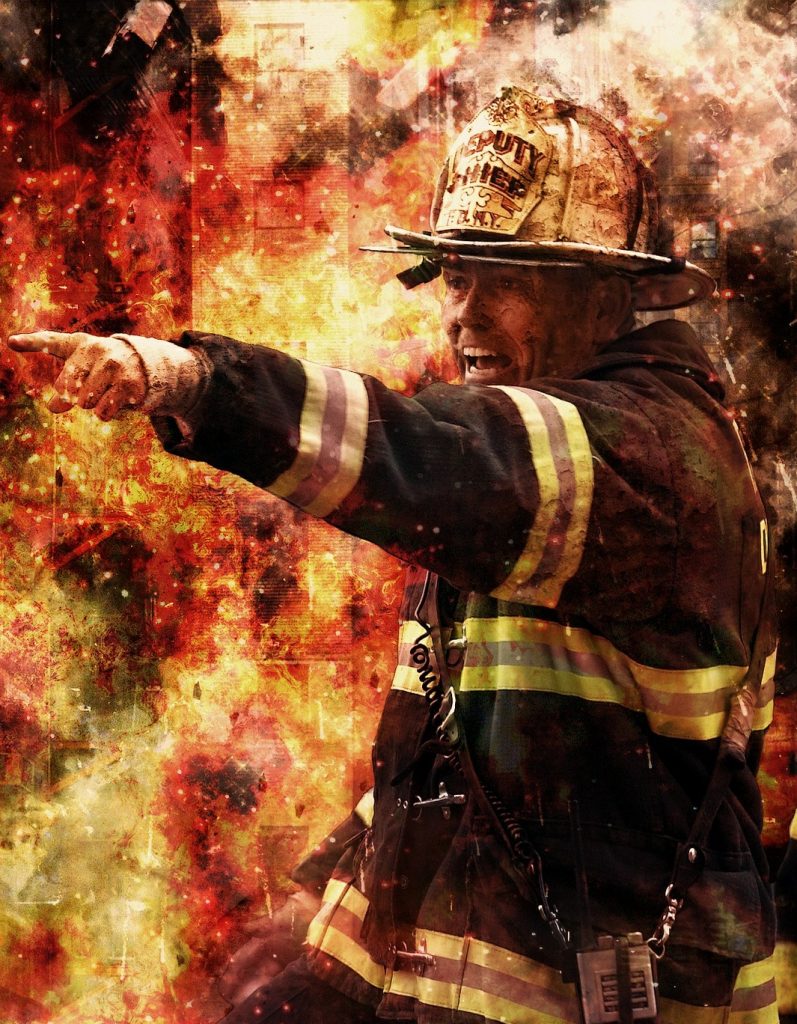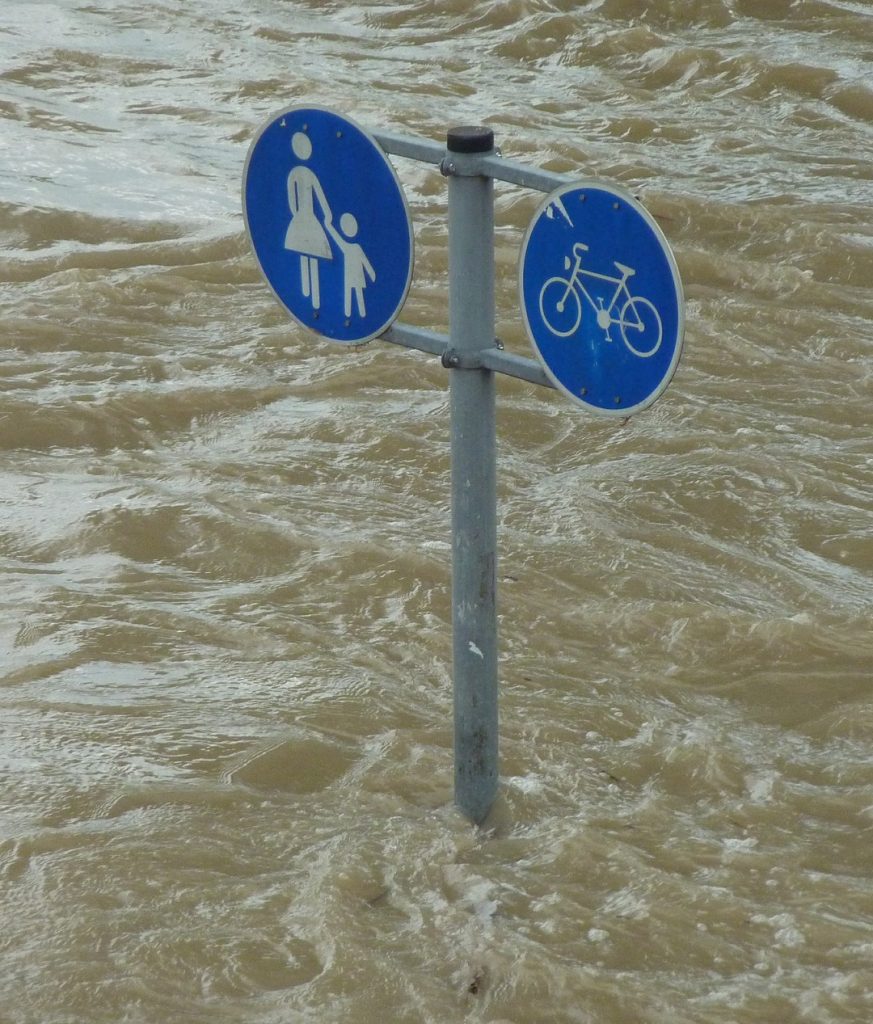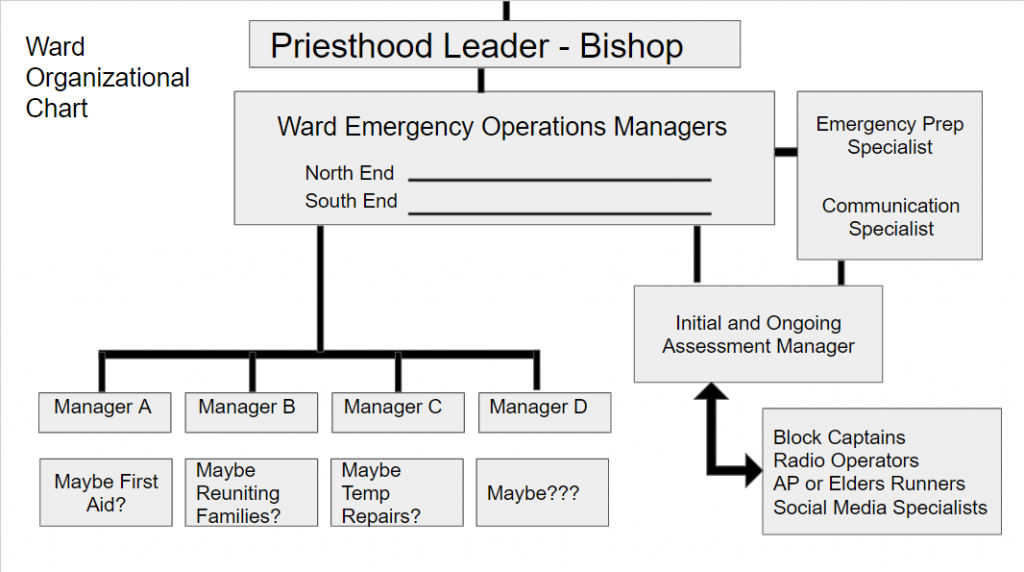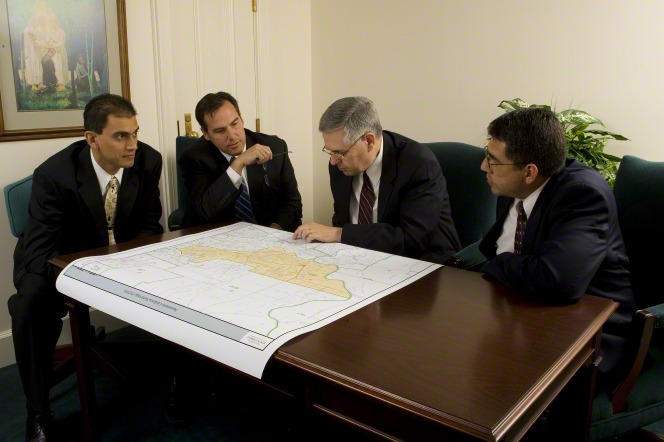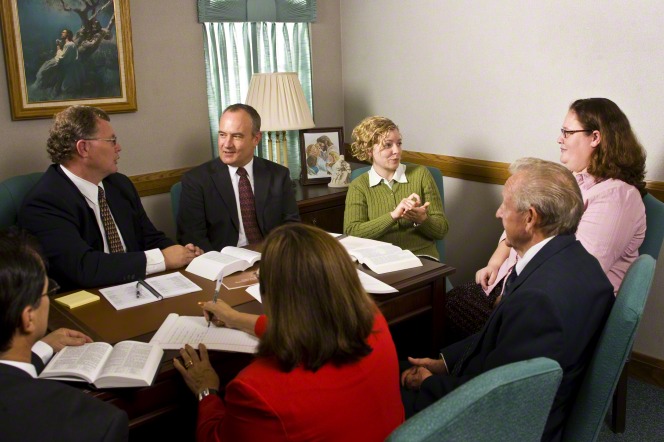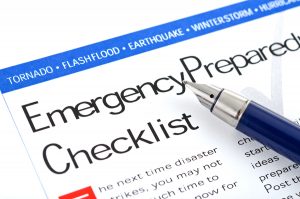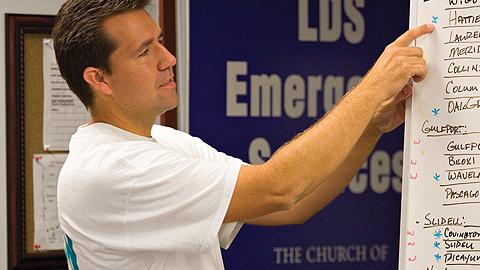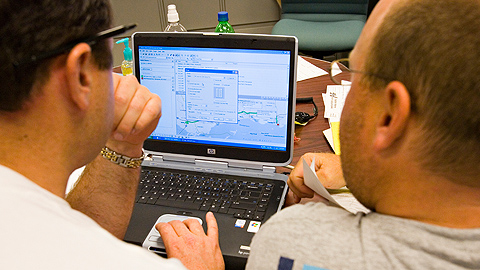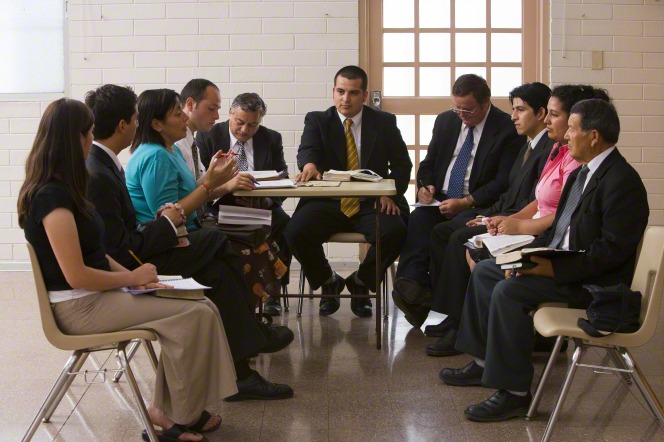Emergency Plan
Ward Council Part
Get Prepared to Manage the First 72 Hours
The Ward Plan
Review for Ward Council
The Ward Council is committed to helping each family weather whatever storms come our way. They will do this by advanced preparation, example, and timely, coordinated response at the time of an individual family emergency or a large scale disaster. In a disaster, ministering means helping in a coordinated way.
The plan is to help as many families as want to be involved work on basic preparedness steps. Being prepared or even just actively working on being prepared will help each family to feel and be more resilient and self-reliant and closer to the spirit as they prepare together. When an actual emergency or disaster occurs, the greatest help for yourself and your children is to be able to say “This may be difficult, but we have talked about and made preparations for an emergency, and we can follow our plans and work together and the Lord will be with us.” Being able to say just this much will help to reduce the trauma and increase the ability to respond in both a mentally healthy and a physically prepared way.
The Area Plan Says:
Encourage individual and family preparedness
- Family emergency plan, emergency kits, three month and longer-term food supplies
Financial preparedness, including insurance
Personal and family safety
Personal and family communications plan (an extension of the family emergency plan)
